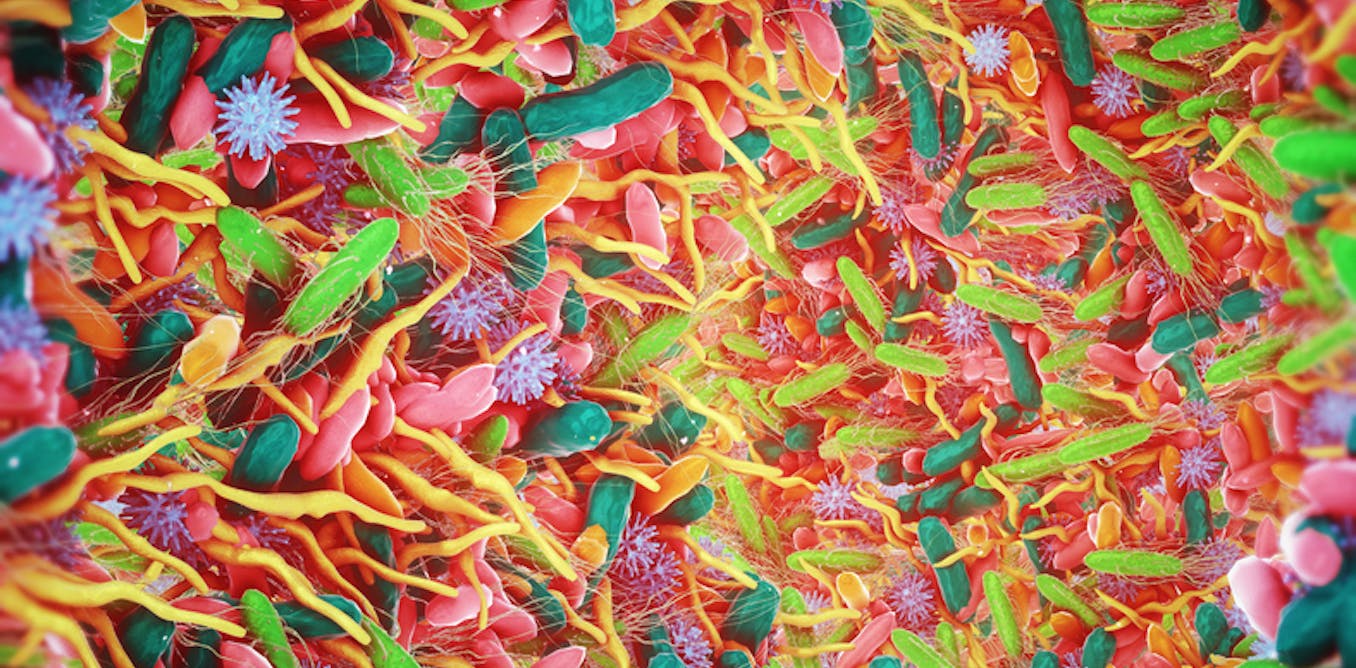Diet-related chronic diseases have reached a crisis point in the United States
Almost half of the population suffers from prediabetes or diabetes. More than 40% are overweight or obese. One in nine people over the age of 65 have Alzheimer’s disease, a development in which researchers are exploring the potential role of diet. Poor diet is also linked to poor mental health, cardiovascular disease and cancer. It was responsible for nearly one in five deaths in the United States and accounted for more than US$140 billion in health care spending in the United States in 2016.
Although Americans are growing in stature, research shows that the gut microbiota — the bacteria living in our digestive tracts — and the energy-producing compartments of cells, the mitochondria, remain hungry for nutrients missing from the American diet.
I am a medical scientist and gastroenterologist who has spent over 20 years studying how food can affect the gut microbiome and the health of the whole body. The ultra-processed foods that make up a growing part of the American diet have stripped vital nutrients from foods. Adding these nutrients may be important for health in part by fueling the microbiome and mitochondria that turn food into fuel.
Your health is what you eat
Research has consistently shown that the Mediterranean diet and other whole food diets are associated with better health and a longer life, and that ultra-processed foods and beverages like sodas, chips, and fast food, among others, are linked to poor health outcomes such as diabetes, cardiovascular disease. , cancer and other diseases.
But improving the diet of an individual, let alone a population, is a challenge. Whole foods are sometimes less convenient and less tasty for modern lifestyles and preferences. Additionally, food processing can be beneficial by preventing spoilage and extending shelf life. Processing whole grains, in particular, extends shelf life by removing germ and bran that would otherwise spoil quickly. Long-term storage of affordable calories has helped combat food insecurity, a major public health challenge.
Much of the public health conversation around diet has focused on what to avoid: added sugars and refined carbohydrates, certain fats, salt, and additives. But modern food processing, while increasing the concentration of some nutrients, has removed other key nutrients, with potential long-term health costs. Equally important is what to add to the diet: fiber, phytonutrients, micronutrients, missing fats and fermented foods.
Only 5% of the US population gets enough fiber, a prebiotic nutrient linked to metabolic, immune and neurological health. Americans are likely also deficient in phytonutrients, potassium and certain healthy fats linked to lower rates of cardiovascular disease and cancer.
Fermentation is the natural version of processing, creating foods with natural preservatives, flavors and vitamins. Recent research suggests that fermented foods can improve gut microbiome diversity and reduce systemic inflammation.
Determining which bioactive nutrients contribute to disease can help individuals and institutions develop personalized diets and foods based on health conditions, economic constraints, and taste preferences. It can also help maximize nutrients in a way that’s convenient, affordable, and familiar to the modern palate.
Microbiomes and mitochondria
Understanding how nutrients affect the gut microbiome and mitochondria could help determine which ingredients to add to the diet and which to temper.
In your lower intestine, bacteria convert undigested bioactive nutrients into biochemical signals that stimulate gut hormones to slow digestion. These signals also regulate the immune system, controlling the amount of energy the body spends on inflammation and fighting infection, as well as cognition, influencing appetite and even mood.
Biochemical signals from the microbiome also regulate the growth and function of energy-producing mitochondria in many cell types, including those in fat, muscle, heart, and brain. When these signals are missing in ultra-processed diets, mitochondria function less well and their dysregulation has been linked to obesity, diabetes, Alzheimer’s disease, mood disorders and cancer. A better understanding of how diet might improve the function of the microbiome-mitochondria axis could help provide a way to reduce the burden of chronic disease.
The Greek physician Hippocrates, considered the father of medicine, once said “Let food be your medicine”, and growing body research suggests that, yes, food can be medicine. I believe that shedding light on the link between diet, health, and the microbiome and mitochondria could help societies achieve a bright future in which unhealthy aging is not an inevitability of aging.

